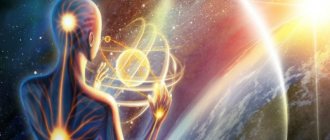- Methods of education. Imperative education suppresses initiative. In this case, the person becomes lethargic, weak-willed, and does not show independent interest. By encouraging initiative, it is possible to achieve the realization of the natural qualities of the individual.
- Possibility of free creative realization. That is, sufficient freedom of action, without control from parents and teachers (except for reasonable control to ensure the safety of the child and direct the creative spark in the right direction).
- Amount of free time. The more it is, the more effective the development. Provided that the resource is spent correctly.
- Environment. It influences in a significant way.
- Material component. Satisfying natural basic needs. With a sufficient degree of satisfaction of needs, an adequate environment for self-realization and development arises. Although, sometimes, need also becomes a catalyst for rapid development.
These are the main points. In fact, the speed and quality of development is influenced by even more factors: from health to motivation.
Abilities and their types
Abilities are a complex formation, a set of very different qualities of a person that give him the opportunity to achieve success in a certain activity. It is the opportunity, but whether this potential opportunity becomes a reality, depends on the hard work, perseverance and determination of the individual.
Abilities are formed and developed throughout life. There are cases when people achieved success in painting, literature, and invention at a fairly mature, or even old age.
The basis of abilities are natural inclinations, which are congenital (but not necessarily hereditary) in nature, for example:
- ear for music;
- high sensitivity to color discrimination;
- large lung capacity;
- increased activity of the right or left hemisphere of the brain, etc.
It is difficult to achieve success without the inclinations, but a person’s natural qualities do not guarantee it. Inclinations can develop into abilities only in the process of mastering an activity, systematic study and hard work.
Along with special abilities associated with a specific activity and manifested in it, there are also general abilities, primarily cognitive. You cannot do without them in any activity. A person with a low level of intelligence or poor memory will not be able to become an outstanding composer even if he has a phenomenal ear for music. The level of general abilities determines the efficiency and speed of obtaining, storing and processing information and the effectiveness of human interaction with the environment, including society.
This is a set of inclinations that presuppose a high level of general abilities, most often called giftedness.
Giftedness
Scholars have not established a universally accepted term that is used in all classical educational books. Scientific books use the option proposed by psychologist V. Stern.
Giftedness is a person’s ability to adapt to emerging needs, to act to achieve goals, perceiving external factors, and this is done consciously with the help of developed thinking.
Despite criticism of the concept by some scientists, the term is still used for interpretation. It is generally accepted that this ability is a natural gift that cannot be determined by heredity. Giftedness is a function of a person’s living conditions, a function of a developed personality, therefore it manifests itself at every stage of development and is directly related to the life of an individual.
Natural potential cannot be determined by a person’s talent. Inclinations make up the spectrum of conditions that are required for personality development. Giftedness is used not to express internal inclinations for self-improvement, but to characterize a person, internal abilities, and internal abilities and external manifestations are closely related.
The manifestation of the inherent potential is possible under favorable conditions for development and achievement of assigned tasks. It is used to express the potential that a person has, the psychological components that allow him to create a reality that corresponds to his wishes and take the necessary actions. Suitable external conditions for dynamic change are imperative. For example, a student needs a curriculum. Stimulating development requires serious demands that are achieved with effort.
Giftedness can be special. In this case, the relationship between internal potential, mental characteristics and the requirements of a certain sphere that the individual chooses is considered. The correlation manifests itself not only at the abstract level, but also in ongoing events, as a result of which a person’s abilities are formed. The individual may be capable of completing assigned tasks. At the same time, the manifestation of general talent is assumed, which must be assessed taking into account external factors influencing a person’s life.
In the scientific literature, the term causes active debate. Many scientists are convinced of the absence of general talent, which must be understood as intellectual potential, memory, and the ability to solve assigned problems. To compare mental and real age, an intellectual quotient is used, which is designated IQ and allows you to determine the capabilities of an individual. IQ determines the potential inherent in nature and the speed at which a person develops, as a result of which the level of development at a certain stage of life is established.
In the psychological sphere, giftedness is part of the human structure, so it has a close connection with character. It is assumed that characteristics manifest themselves under the influence of upbringing and external conditions, the favorability of which varies. Psychologists look at the type of thinking and temperament, trying to determine the capabilities of individuals.
Special abilities directly depend on the field of activity in which a person is involved. The activity must be active and effective for the manifestation of properties that are characteristic of the individual.
As a result, what stands between giftedness and special abilities is the ability to correlate the level of human development and the pace of improvement. These aspects are considered by teachers who are responsible for the future of children.
In genetic terms, the relationship between general and special development is stable. For this reason, geneticists and scientists believe that a person’s future is determined not only by external conditions, but also by natural potential, which is determined by genetics. Understanding giftedness depends on the significance of the chosen direction of activity, the success of other people who show their inclinations.
Scientists believe that giftedness is a quantitative concept. The qualitative approach cannot be fully used. The question regarding the definition of inherent abilities remains open.
At the same time, C. Spearman notes that mental talent should be determined by the mental energy that is characteristic of a person. This quantitative approach to interpretation is correct, because it allows one to assess the development prospects of an individual.
Abilities differ at a qualitative level: one person has the capabilities and potential for one area, and another person has the potential for another area. External conditions influence the degree to which internal potential is manifested, so they deserve attention.
Psychologists evaluate qualitative differences to open people’s prospects and proper self-development. Researchers study information and experimental materials to create an assessment of an individual's abilities. The goal is to determine the person's abilities that will allow him to achieve success.
Giftedness and its role in human life
In psychology, there is no consensus on what giftedness is, and most often this concept is used in pedagogy. There, giftedness is considered as a complex of personality qualities that contributes to the successful acquisition of knowledge and the development of skills in educational activities.
In psychology, there are several points of view on the essence of this concept, but most often giftedness is associated with cognitive abilities: attention, memory, thinking, imagination and creativity. The concept of “giftedness” thus includes the following individual characteristics:
- observation and high level of concentration;
- the ability to quickly and often spontaneously remember diverse information;
- free access to information stored in memory and, as a result, associative thinking;
- flexible thinking, capable of operating with concepts and categories from different fields of knowledge;
- high level of logical thinking;
- developed imaginative thinking and imagination;
- the ability to think original, creatively and find non-standard solutions to problems.
Thus, giftedness provides a person with the opportunity to master various types of activities, but this opportunity is potential, since special abilities are also necessary for success. Although, given that giftedness presupposes a penchant for creativity and significant general activity, a person with a high level of this characteristic will always find an area of self-realization and an area where he can achieve success. And a number of psychologists also identify special talent associated with special abilities.
About testing for genius. How to diagnose a person’s originality?
Testing in such a context is very difficult. Especially if the test is carried out on a child. The rudiments cannot always be recognized immediately; sometimes more than one consultation is required. The issue of diagnosis is dealt with by specialists in clinical psychology. The psychologist must have sufficient experience, otherwise the results will be inaccurate or completely false.
There is no single test for genius, since we are talking about an integral quality that combines three characteristic features:
- High level of intelligence.
- The ultimate level of creativity.
- High flexibility and mental agility. Also her activity.
As part of the examination, special events are prescribed.
Oral conversation
Allows you to evaluate the logic of statements and the structure of the subject’s speech. Also direct the conversation in the right direction and lead to certain actions. Provocations are also used to understand how a person gets out of difficult situations. Here, again, the specialist is required to have sufficient experience and impeccable adherence to the rules of formal logic.
Torrens test
In different modifications. As part of this testing, special stimulating graphic material is used: figures, lines. The subject is asked to complement the drawn forms at his own discretion to create complete images or even compositions. A psychologist does the decoding. Upon completion, a final score is assigned. Depending on the result obtained, we can talk about both very low and extremely high creative potential of the individual. Before testing, especially if a child is being tested, you need to carefully explain the rules to avoid misunderstandings and false underestimation of the results.
Intelligence tests
Ravena, Eysenka, other modifications. Of course, taking into account the age of the subject. The questions that are used are divided into categories - from logical (which figure is extra) to mathematical, based on simple calculations. Also verbal, assessing the ability to perform operations with linguistic units. Some tests only use a graphical representation of the material. The use of various tests and questionnaires allows you to obtain the most accurate and unbiased results. In such a situation, errors are practically eliminated.
Observation of the behavior of the subject. Assessing his interests and preferences
Conclusions are drawn based on observations and the specialist’s own understanding. Although there are no formal criteria, the signs of a person’s genius are quite clearly visible.
How does genius manifest itself? Among the features:
- high intelligence - in adulthood, the limit indicating exceptional abilities lies at the level of 145-150 units and above, depending on the individual characteristics of the individual, this number may be more or slightly less;
- the maximum level of creativity is originality of thinking, even in standard situations such people come to paradoxical and non-standard conclusions, which is noticeable when conducting tests;
- well-developed imagination - found in everyone, but at the same time, it does not always allow one to effectively engage in artistic activity in a broad sense; in childhood, imagination is especially noticeable; during diagnosis, this makes the task easier;
- multitasking - the ability to solve several problems at once in parallel, is found not only among geniuses, but for them this quality is organic and does not require special efforts for development or ongoing implementation;
- mental flexibility - the ability to quickly switch from one issue to another, is accompanied by a sufficient level of mental energy, this in turn determines the extreme performance of such people, they rarely get tired and quickly regain their strength, with a willingness to continue working;
- multipotentiality - that is, the development of extraordinary qualities in several areas at once; often extremely gifted people are able to work productively in several areas at once;
- sensitivity - high sensitivity, susceptibility to external factors, stimuli and other factors;
- curiosity.
Such criteria of genius are difficult to identify in one consultation. You need to observe for a certain time to draw conclusions.
Talent as a natural gift and level of ability
You can often hear the expression: “He was given talent by God.” The assessment of talent as a kind of gift is connected, of course, with the desire to somehow justify one’s own “talentlessness” - if it’s not given, it’s not given. But there is a certain amount of truth in this statement.
Talent is a very high level of special abilities and, indeed, it is not given to everyone. Talent is based on inclinations - natural qualities, a person’s innate predisposition to a certain activity. It most often manifests itself in anatomical, physiological or psychophysiological features:
- ear for music;
- sensitivity of the visual analyzer;
- activity of the center of mathematical abilities in the cerebral cortex;
- speed of mental reactions, etc.
All this creates conditions for potential success in activity. But you still need to master this activity, and not at an average level, but at the level of mastery - only then will people talk about your talent.
That is, although talent presupposes natural data, it is, first of all, work, perseverance in mastering techniques, methods of activity, the process of developing and improving abilities. Even if a person was born with excellent inclinations, but does not show perseverance and hard work in developing his abilities, he will not achieve success; at best, he will become a strong average peasant, an artisan, and not a master. This is what they usually say about such people: “I buried my talent in the ground.”
But, one way or another, talent is a fairly common phenomenon; moreover, almost all children are born potentially talented. And it depends only on upbringing and your own perseverance whether potential talent will turn into real talent.
But genius is a phenomenon of a completely different order, although it is also related to the level of abilities. But we can say that genius goes beyond the upper limit of the mental norm, and therefore is extremely rare.
Superpowers or gifts? Learn from the superhumans themselves about their powers.
What is the difference between the concepts of talent and genius?
| Item: | Philosophy |
| Kind of work: | Essay |
| Language: | Russian |
| Date added: | 01.01.2019 |
- This type of work is not scientific work, it is not a finished work!
- This type of work is a finished result of processing, structuring and formatting collected information intended for use as a source of material for independent preparation of educational work.
If you have a hard time understanding this topic, write to me on WhatsApp, we’ll look into your topic, agree on a deadline, and I’ll help you!
Using this link you can find abstracts on any topic and see how they are written:
| Many ready-made essay topics on philosophy |
Check out these similar threads, they might be useful to you:
| The crisis of contemporary art |
| Modern trends in art |
| Essay on the topic What is art? |
| List the functions and types of art |
Introduction:
A thousand times more has been written about geniuses than the volume of their own works. In ongoing research, more facts and interpretations of their unique fates are revealed. Inevitable contradictions arise in the diversity of views, hypotheses and discoveries, and therefore interest in the search for truth never dries up. The outstanding Russian historian V.O. Klyuchevsky said that talent is power over people. The French psychologist T. Ribot believed that talent depends on upbringing and circumstances, but genius is the fatal ability of creativity. When talking about genius, they almost always mean either a divine gift or traits of extreme manifestations of the psyche.
The concept of genius, familiar to people, suggests that it is, rather, not the person himself, but the state of his soul. Genius is often understood as the highest degree of giftedness, super-talent.
Every person has the opportunity to express themselves in one area or another. But why are there so few brilliant people? According to research, there are only 400-500 of them in the entire history of mankind. To answer this question, we will try to understand such concepts as genius and talent and highlight the essential characteristics of genius that distinguish it from talent.
Talent
The problem of talent and genius in art as the main and indispensable condition for creative activity arose in the science of ancient Greece. The "oddities of talent" were fully discussed by Plato. In particular, Plato was the first to draw attention to the act of inspiration and also revealed the role of intuition in art.
The second concept of talent outlined by Aristotle was based on the idea of the importance of talent in a person’s life.
Talent is a natural gift, a person’s natural ability to successfully complete any task. Some are more suitable for military affairs, others for science, others for crafts, others for art. It is impossible to work creatively without talent, but talent itself does not ensure complete success: it is necessary to develop natural abilities and hone them.
Talent is certain or outstanding innate abilities that are revealed with the acquisition of skills and experience, giftedness.
The combination of abilities that underlie talent in each specific case is special, characteristic only of a certain individual. The presence of talent should be inferred from the results of human activity, which should be distinguished by its fundamental novelty and originality of approach. A person's talent is usually determined by the expressed need for creativity and reflects social needs. A talented person is capable of creating, but he can only develop what a genius has discovered, detailing and concretizing his inventions.
Another feature of talent is that it is able to prepare the ground, become a harbinger of the activity of a genius, outlining the path along which a brilliant person will then confidently walk.
Almost every person living on Earth has a talent for something, you just need to find and develop it. Talent can be honed through tireless hard work. Modern scientists identify certain types of talents that people possess to varying degrees. In the early 1980s, Howard Gardner wrote "Frames of Mind."
In this book, he identified nine types of talent and intelligence:
- Verbal-linguistic (responsible for the ability to write and read, inherent in journalists, writers and lawyers, linguists)
- Digital (typical for mathematicians, programmers)
- Audience (musicians, linguists, linguists)
- Spatial (inherent in designers and artists)
- Physical (they are endowed with athletes and dancers, these people find it easier to learn through practice)
- Personal (also called emotional; it is responsible for what a person says to himself)
- Interpersonal (people with this talent often become politicians, speakers, traders, actors)
- Ecological talent (trainers, farmers are endowed with this talent).
- Entrepreneurial - talent (new generation thinking, imposed by time and money).
The word "talent" comes from the weight measure "talent". In the New Testament there is a parable about three slaves who were given a coin called “talent” by their owner. One buried his talent in the ground, the second exchanged it, and the third increased it. Hence three expressions: buried, exchanged and increased (developed) their talent. In the Bible, the word “talent” has spread figuratively: as a gift of God, the ability to create and create something new without neglecting it.
Already in childhood, the first signs of talent may appear in music, mathematics, linguistics, technology, sports, etc. However, talent can also appear later. Hard work and perseverance go a long way in developing talent. Talented people are characterized by the need to engage in a certain type of activity, which sometimes manifests itself in passion for the chosen business.
Talents always appear on time, because they are imbued with the spirit and needs of their time; they undoubtedly bring benefits and accelerate the overall course of learning. Talents are manifested mainly in science and second-rate art. Talent is characterized by the ability to achieve a high order, but in principle remains within the framework of what has already been achieved.
Jürgen Meyer says that a talented person acts strictly consciously. He knows how and why he came to a certain theory, but genius is completely unknown: all creative activity is unconscious.
Genius
The highest level of development of abilities, manifested in creative activity, the results of which have historical significance in the life of society, in the development of science, literature, and art, is called genius.
Originally, the word "genius" meant a demon or demonic being, similar to what Socrates called the "inner voice."
One of the first researchers of genius was I. Kant, a German philosopher. He said: “A genius is an artist who, with his work, closes one poetic era and opens another.” Because genius is not a psychological phenomenon, but a sociological one. Those created by geniuses are sooner or later recognized as “masterpieces” - they are always unique, inimitable creations. According to I. Kant, genius is necessarily associated with “the creation of qualitatively new unique creations, the discovery of previously unknown paths of creativity.” Kant sharply distinguishes between art and science, which can be determined according to well-known rules. Kant believes that given the right conditions, effort and science, anyone can achieve success. This is the difference between Newton and Mozart. The rules by which the scientific process is carried out can be traced; anyone can use them. The artist's working method is incomprehensible; it is a mystery to most people, and sometimes even to the artist himself. Kant considered the natural talent of its creator to be a characteristic feature of art in comparison with science. Art is specific, based on the innate uniqueness of artistic genius. Kant's position on the innate nature of artistic talent and, perhaps, the underestimation of the role of the social environment in the formation of the artist's creative abilities led to his understanding of the nature of the creative process in art. This process is understood as unconscious, and in comparison with the process of scientific discovery it is not formalized: “The author of a work for which he owes a genius does not himself know how he realizes the ideas for it, and this is not so. In his ability to invent them and communicate them to others according to such rules as would enable others to create similar works." A scientist, unlike an artist, can demonstrate his train of thought that resulted in a discovery. In this case, Kant is right in the sense that by its nature art, unlike science, uses the language of images, which cannot be fully translated into ordinary language or the language of science, that is, the language of concepts cannot adequately explain the content of painting, music and poetry.
Secondly, even if a writer or artist can explain the entire technology of the creative process, any reproduction and duplication of an original work of art does not contribute to the development of art, but increases the number of imitators.
Interestingly, the word “genius” is still found in the mythology of the ancient Romans, where they denoted a deity - the ancestor of the clan. People believed that every person had this from birth, and sometimes there were even two of them - an evil and a good genius. It was believed that genius guides human behavior, and after the death of his ward, he wanders the earth. I. Kant believed that this spirit not only protects a person, but also inspires him with original ideas. Therefore, according to the philosopher, the creator of originality and genius himself “does not know how these ideas come to him, but creates guesses”, according to the instructions of this good spirit. It is originality as “the talent of creating something for which no definite rule can be given, rather than the ability to create something that can be learned by following a definite rule.” Kant considers the main quality of genius.
However, there is a huge gap between potential, genetic and recognized geniuses who have realized their potential. The frequency of births of potential geniuses who have developed so much that they somehow attract attention to themselves is calculated in figures of the order of 1: 100,000. The frequency of geniuses realized to the level of recognition of their creations and actions as a genius, even in the age of higher education, is estimated at 1:10,000 000, which implies the presence in the mid-20th century of about one hundred geniuses per billion inhabitants of civilized countries.
Genius is the practical embodiment of a person’s increased level of creative potential compared to other individuals. Traditionally expressed in new and unique creations, belatedly recognized as “masterpieces”. As a rule, a genius creates much more productively and quickly than his peers who achieve official recognition in the same field of activity. There is an opinion that genius requires the universal interests of an extraordinary personality.
Individual characteristics of abilities lie in the universality or one-sidedness of their development. M. Lomonosov, D. Mendeleev, N. Borodin, T. Shevchenko and others had versatile abilities. For example, M.V. Lomonosov achieved outstanding results in various fields of knowledge: chemistry, astronomy, mathematics, and at the same time was an artist, writer, linguist, and knew poetry very well.
Genius always goes beyond the ordinary, habitual, sedentary. The main characteristic feature of a genius is the early developed abilities of intuitive knowledge of the essence of things and their embodiment in artistic images. A genius is distinguished by his anatomical properties and physiological processes - a large brain, sensitivity, the spontaneity of children. He has a purely playful attitude towards the world.
A genius is a great individuality that rarely appears in history. He is educated by the masses above whom he rises and who have extended their hands to each other for centuries. “It is not important that everyone is a Goethe, but it is important that one Goethe, one Schopenhauer be born.” Nietzsche believed that “all humanity must work to give the world individuals of genius; this is its task, and no one else should have it.”
Distinctive features, properties, signs
How to distinguish a brilliantly gifted person from a talented person, what are the essential signs of this difference? Disputes on this topic can last forever.
It is extremely difficult or almost impossible to strictly define the concept of “genius”, as well as to determine its boundaries, since geniuses themselves give thousands of definitions. But how then to draw a fine line between creations in order to really understand that this work belongs to a brilliant person, and this is a talented work. At present, the question of the boundary between genius and talent remains open. The difficulty of determining the line where talent ends and genius begins was once noted in the encyclopedic dictionary of F. Brockhaus. In the article, “genius” o) as the highest degree of giftedness, in comparison with talent as the lowest, cannot be accurately defined; the distinction itself is arbitrary, attempts to strictly distinguish them are arbitrary, and their use is controversial. “Genius differs from talent both quantitatively and qualitatively. Talent refers to an innate aptitude for certain special actions and involves the relatively quick and easy acquisition of special skills. Genius includes originality, creativity, and the ability to think and work in areas that have not been previously explored, and thus give the world something meaningful that would otherwise be impossible to master. »
Of the noted traits of genius, in contrast to talent, the most common and at the same time convincing are at least three main ones.
The most important thing that distinguishes them is the originality of their genius, its undoubtedly innovative character. I. Kant once remarked: “... originality should be the first property of genius. Since stupidity can also be original, his works must be at the same time models, that is, indicative." Although many talented people make great contributions to the fields in which they worked, the value and scope of new contributions cannot be compared with the genius whose thoughts and actions are the starting point of entire generations of creators. A talented person creates something new in his work. Talent is close to genius, but less significant. Genius is the highest stage of talent development. The work of a brilliant person has historical and necessarily positive significance for society.
The difference between genius and talent lies not so much in the degree of a person’s giftedness, but in the fact that a genius creates an era in the field of his activity.
Giftedness usually manifests itself in versatile abilities and borders on talent. Talent is the ability to perform a certain activity, manifested as creativity. A high level of creativity in event execution is a hallmark of talent. These personality traits that define talent are also character traits, so talent brings skills closer to character.
Talent is much more important for life; on the contrary, a genius often suffers from obstacles and even dies of hunger due to his eternal dissatisfaction with what he has achieved.
What signs can characterize genius creativity? Take, for example, this sign: a genius sets a goal that is invisible to other people. Talent, striving to achieve the unattainable, rarely goes beyond the boundaries already discovered by others, but when it succeeds, it approaches genius. Genius is characterized by exceptional innovation and revolution. Revolutionary upheavals in science - complete or partial changes in paradigms, the creation of new directions in art, of course, were carried out by brilliant individuals. Such curves are only thanks to brilliant talent. Any work of art or discovery in science can be analyzed from these points of view.
The gift of genius must be considered holistically through a combination of attributes, since a single attribute (such as foresight in science or originality of style in art) cannot help define genius. The difficulty of classifying the concepts of genius and talent and separating them is due to the fact that many properties and characteristics are characteristic and their meanings are the same for both concepts, so it is difficult to determine whether, for example, a given work of art is brilliant or whether it was created by a talented artist. For example, genius and talent have a strong imagination. But how much stronger it is in a genius is a question.
Let's choose one more sign. This is the universality of giftedness. Talent, like genius, is universal. Many talented scientists have established themselves as writers. But geniuses almost always have multiple talents in different areas at the same time. Another thing is that the peak of their achievements occurs in one outstanding - compared to others - field, although there are geniuses and exceptions, such as Aristotle, Leonardo da Vinci, Michelangelo, Newton, who have become famous for centuries as universally gifted geniuses. A talented person expresses the demands of the masses in his work and strives to satisfy public interests, so during his life he is almost always recognized and reaps the fruits of his work. But unlike talent, genius is always ahead of its time, so its fate is often tragic.
The next significant sign of a brilliantly gifted personality is the influence that the creations of a genius have on his contemporaries, but especially on his descendants. In world literature, such works include the works of Byron, Pushkin, and Dostoevsky. Genius can be considered the philosophical orientation of creations, regardless of whether they belong to the world of science or the world of art. Talented people only rarely manage to achieve a powerful philosophical sound in their works. If a talented creation sounds like a solo, a brilliant creation can be compared to an orchestra. But perhaps the most important link in the idea of a genius essence is the complex of unique mental characteristics inherent in a genius personality. To understand what the mental phenomenon of genius is, it is necessary to study not only the personality of genius and creativity, but also the complex mechanisms of creativity. What is the personality of a genius, how does the psyche of a genius differ from the psyche of other people? We will build on these pillars in our research.
There is one more feature that characterizes many brilliantly gifted people - this is the morbidity or even pathology of their psyche. They talk about mental pathology as one of the signs of genius, as a mystery: why a painful psyche (in the presence of outstanding abilities) can contribute to outstanding achievements in creativity. When geniuses are close to madness, in this madness they see life amazingly, open its hiding places, tear off masks and, penetrating into its depths, find invisible connections for others. In fact, when talking about genius and the nature of genius, you need to look for some “autonomous functional psychoneurophysiological complex” of the individual, which clearly reflects the essence of genius. The genius also creates unconsciously, thanks to his intuition, follows a path that no one has taken, and therefore what is born becomes original. This ability of geniuses to guess what for others does not exist at all, confirmed Schopenhauer. Overcoming adversity, they go to their Olympus during life or after death and remain there forever - beyond the boundaries of space and time. They are so different and at the same time close in their elusive similarity, the deep and superficial difference in their fate. And all these chosen people are united by one secret - inaccessible and hidden - the secret of their unique and unique creativity. Is there a key to solving it, or will it remain a mystery forever?
Today, researchers point to the need to distinguish between intellectual and creative abilities and conclude that according to which 60-80% of intelligence depends on heredity, and 20-40% is determined by the environment, creativity, on the contrary, is 60-80% determined by training and education , and heredity - by 20-40%. Taking into account the fact that genius is predominantly creative, and talent is intellectual, we can talk about the inheritance of talent, on the basis of which genius can grow.
One of the greatest misconceptions is the assertion that genius is the highest degree of talent. Moreover, genius is almost the exact opposite of talent. A genius, as it was said in the movie A Beautiful Mind, is born “with two halves of a brain and one half of a heart.” In other words, genius is the highest level of intelligence development combined with a low level of performance. Unlike talents, the highest level of performance is combined with a low level of development of human intelligence. It is no coincidence that most talented people study poorly, but work well and earn decent money. While geniuses discover new theories, create brilliant works of art, but become disabled as a result of their madness, receive a pension and are actually unable to work.
A mad genius can only create one brilliant work of art or discover one brilliant scientific theory. This occurs at the initial stage of development of the disease. This is a disease that promotes the manifestation of genius.
At the same time, it is wrong to call all geniuses crazy. Among them there are mentally healthy people, and there are many of them (for example, in the modern world these are Hans Zimmer, John Williams, Ennio Morricone). And unlike mad geniuses, they are not limited by the number of brilliant scientific discoveries or brilliant works of art, so it is easier for them to leave their name in history than for madmen.
It is also wrong to say that a talented person is talented in everything. As a rule, talent manifests itself in areas adjacent to the main activity. Since both talent and genius are deviations from the norm, talents often have health problems. The most famous examples of sick talents: Michael Jackson (he underwent plastic surgery several times), Vladimir Vysotsky had kidney and heart problems, and one of the Wachowski brothers changed his gender. Genius works with the mind, and talent works with the heart. Most geniuses are altruists. Most talents are selfish. The speed of a genius is many times higher than the speed of talent. Talent is often inherited. So far, genius is never inherited. Talent is capable of creating masterpieces of its time, and geniuses are able to create masterpieces outside of time.
Thus, genius should not be confused with talent. Talent is not a part of genius, and moreover, it is not the same thing.
A creative person, talent, genius are the ascending stages of a person’s intellectual and creative development, a measure of assessing his achievements. In the relevant literature today one can find definitions of each of these concepts, but the boundaries between them remain blurred. Genius is always talent, its most complete and profound manifestation. But at the same time, not every talent is a genius.
What is genius
When we say that genius goes beyond the norm, we do not mean pathology or illness, but the fact that the abilities of a genius significantly exceed a certain standard norm accepted in society. This allows geniuses not only to achieve success, often in several types of activities, but also to influence the very course of development of human civilization.
A talented person differs from a simply capable person quantitatively - in the level of development of abilities, but a genius differs qualitatively.
Highest level of human ability
Characteristics of a genius:
- unusual perception of the environment;
- out-of-the-box thinking;
- the highest level of creativity.
Moreover, spontaneous creativity, when new, original ideas are born as if on their own, and intuitive thinking is ahead of rational thinking.
No less important is such a quality of genius as interest, passion, often turning into obsession. Brilliant people are often interested in different fields and types of activities, and are able to achieve success everywhere not only thanks to their giftedness and talent, but also to their tremendous hard work, perseverance, and determination. For the sake of new knowledge or mastering a new activity, a genius can sacrifice many things, including his own health and the well-being of loved ones.
Geniuses have the ability of scientific foresight not only due to their analytical abilities, but also because they themselves were in many ways ahead of their time, and their discoveries and creations seemed to be taken from the future.
The basis of genius is a very high level of giftedness and talent, which is manifested in various types of activities. It would seem that a genius is capable of achieving success in everything. For example:
- Leonardo da Vinci was not only an artist, but also an architect and an outstanding inventor, whose ideas were hundreds of years ahead of his time.
- Giordano Bruno is known not only as a brilliant astronomer who expressed ideas that were incomparable with the level of development of science of that time, but as a poet and philosopher.
- Johannes Kepler, who discovered the laws of motion of the planets of the solar system, became famous as a famous mathematician, mechanic and optician.
- The outstanding philosopher Rene Descartes was also the creator of analytical geometry, a physicist and even a physiologist. By the way, the Russian physiologist I.P. Pavlov considered him his predecessor.
- One of the brightest Russian geniuses, Mikhailo Lomonosov, showed abilities in very different fields: in poetry and mechanics, chemistry and history, painting and metallurgy, geography and astronomy.
Reading about geniuses, you understand that these are people who are clearly outside the norm. But how abnormal are they?
Giftedness, talent, genius: distinguish between concepts
admin Intellectual skills, creative tasks of a person, potential are explained by various concepts used in scientific works. The terms are of interest to scientists, psychologists and educators. The opinions of researchers are the basis for the creation of pedagogical and psychological methods that allow people to find directions for development.
Ahead of its time
Probably, geniuses themselves speak most accurately about genius. Johann Wolfgang Goethe: “Genius is an exact fantasy.” Salvador Dali echoes him: “As for painting, I have one goal: to capture specific images of the Irrational as accurately as possible.” And he: “I have always seen what others did not see; but what others saw, I did not see.”
Genius lies in a paradox; it cannot be fully understood and accepted, especially by his contemporaries. The essence of a genius is that he is always ahead of his time, always sees more and further than others. The basis of genius is initiative, curiosity, simplicity without flaw.
From this we can conclude that every child is a genius. He is simple, inquisitive and actively proactive.
Unfortunately, we adults, caught up in our daily routines, often neglect children’s genius, just as we once neglected ours. We suppress children's initiative and curiosity, of course, “for their own good,” but in fact, for our own convenience and peace of mind. We impose our own rules, often unnecessary, we artificially “complicate” the child, depriving him of integrity and simplicity.
It is very important to give your child space to explore and express their genius. It can be expressed in anything, in any creative activity, and not just in the ability to perform a certain type of activity. Especially to the one that his parents like and which they, sometimes unconsciously, try to impose on him, thereby denying and suppressing his true calling.
In a genuine calling, or a special one, an ability inherent only to this particular person, talent or talent is hidden. Special talent in any type of activity is due to innate qualities; it is usually one-sided, narrowly focused.
A person who is talented in one area is often unsuccessful or even completely helpless in another.
This has long been noticed by the people and is expressed in the proverb: “Talent needs help, mediocrity will break through on its own.”











